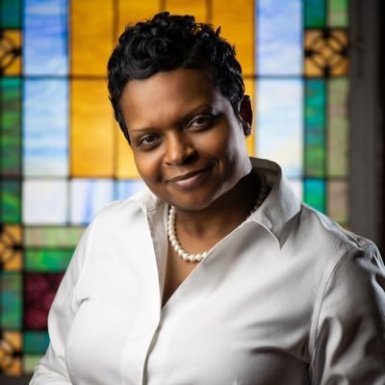We will no longer be silent: The role of the Black Church in supporting those with dementia and their care partners

Sign up and receive information on the latest news and updates.
On this National Day of Prayer, we will no longer be silent about dementia and how it impacts our community. As Black Americans, we need hope. We will speak up, share our stories, and support each other.
It is true -- dementia does not discriminate, it has no color to it. This disease is happening way too often in the Black community. Older Black adults are particularly vulnerable to developing various forms of dementia. Black adults are twice as likely than older White adults to have dementia. We are such a hush-hush community, and that needs to stop today if we want better care and improved health outcomes. We cannot help each other if we don’t talk about it and put reputable community resources and supportive services in place.
I see a connection with one’s faith community to be important because of the reliance on the church for spiritual, emotional, social, and material support. In a survey by UsAgainstAlzheimer’s, 70% of respondents said faith sustains them on their Alzheimer’s journey. The Black Church has always been a powerful institution in the Black community, responsible for providing support and leading change. With that being said, I feel the Black Church has an enormous opportunity and responsibility to respond to the increasing prevalence of dementia in the Black community.
As a Black nurse scientist, I have devoted my career to reducing health disparities for underserved populations. My mission is to improve access to resources and awareness of dementia in Black and faith communities by conducting research and providing education.
I work with Black churches to create culturally relevant dementia-related programs for their parishioners and community. When I am working with faith leaders, they often have shared with me they didn’t know what Alzheimer’s or dementia was. While conducting research with Black families living with dementia, I heard their stories on how they felt the church – the one place they thought they can always count on – abandoned them.
These experiences led me to creating the Alter program. Alter is a dementia-friendly initiative that inspires and equips Black faith communities to better support persons living with dementia and their care partners. Alter aims to be the guiding light for churches and caregivers to keep the spiritual connection strong and vibrant with those living with dementia. Through this program, my team works with churches to create dementia friendly and inclusive environments.
Currently, there is no cure for dementia. While finding the cure is important, it is also crucial that interventions and programs be developed to help those diagnosed with this condition and their families to live fully. But what I found working in the Black community is that faith leaders find themselves unable to respond to the needs of the families due to their lack of preparedness and training regarding dementia.
If churches are given the proper training and resources, they can provide a supportive environment for families affected by dementia. Churches can achieve this by spreading awareness through educating their congregation, implementing environmental modifications, such as wearing name tags or displaying clear signs for areas like rest rooms, and offering dementia resources and support programs.
Involvement with clergy and congregants can also help persons living with dementia and their care partners feel more comfortable and encouraged about their diagnosis. In fact, I have worked with Black senior pastors to create dementia-friendly worship services and have seen firsthand the positive impact these tailored services have had on families whom felt they couldn’t attend worship services or include their family member living with dementia in the worship experience because of their circumstances.
But we need to act. We need trailblazers. We need churches that are ready to break the silence and commit to creating dementia friendly and inclusive environments. It is my hope and prayer that Black families will speak up and feel more comfortable seeking support from the church and vice versa—the church will feel more equipped and comfortable supporting families living with dementia.
This is why I am partnering with Dementia Friendly America and Faith United Against Alzheimer’s to lead an open discussion on creating dementia-friendly congregations in the Black community. Please join us on Tuesday, May 25 from 6-7 p.m. EDT for the webinar “Dinner and Dialogue: Dementia Friendly African American Congregations.” Click here for free registration.
